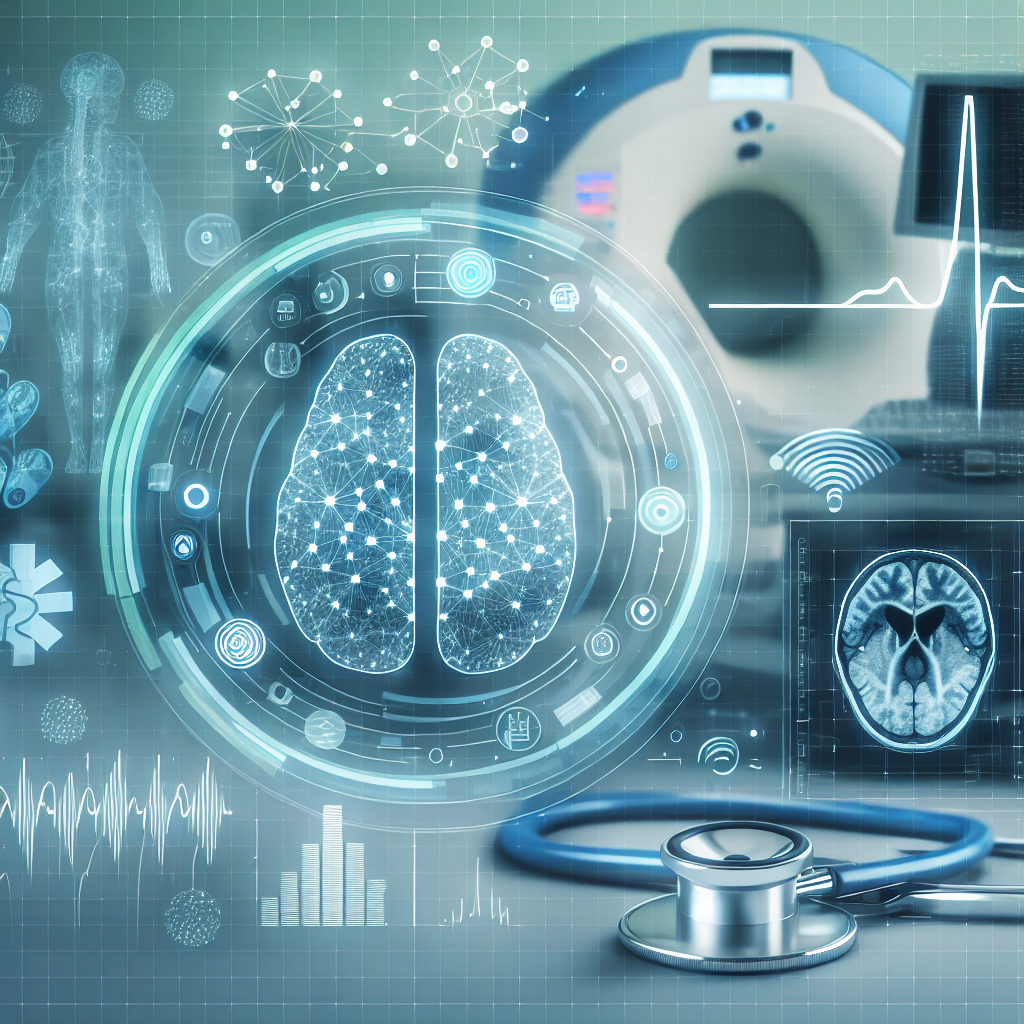Artificial intelligence (AI) has revolutionized many industries, including healthcare. In recent years, AI has become an essential tool in healthcare diagnostics, offering a wide range of benefits for both patients and healthcare professionals. From faster and more accurate diagnoses to personalized treatment plans, AI has the potential to transform the way we approach healthcare. In this article, we will explore the benefits of AI in healthcare diagnostics and how it is changing the landscape of medicine.
1. Improved accuracy and efficiency
One of the primary benefits of AI in healthcare diagnostics is its ability to improve the accuracy and efficiency of diagnoses. AI algorithms can analyze large amounts of data quickly and more accurately than a human can, leading to faster and more precise diagnoses. This can be especially beneficial in cases where time is of the essence, such as in emergency situations or when dealing with rare diseases.
AI can also help healthcare professionals make more informed decisions by providing them with additional data and insights. By analyzing a patient’s medical history, genetic information, and other relevant data, AI algorithms can help doctors make more accurate diagnoses and create personalized treatment plans. This can lead to better outcomes for patients and reduce the likelihood of misdiagnoses or unnecessary treatments.
2. Personalized treatment plans
Another significant benefit of AI in healthcare diagnostics is its ability to create personalized treatment plans for patients. By analyzing a patient’s medical history, genetic information, and other relevant data, AI algorithms can help doctors tailor treatment plans to each individual’s specific needs. This can lead to more effective treatments, fewer side effects, and better outcomes for patients.
AI can also help healthcare professionals identify potential risks and complications before they occur, allowing them to take proactive measures to prevent them. By analyzing data from multiple sources, AI algorithms can identify patterns and trends that may not be apparent to a human, helping doctors make more informed decisions about patient care.
3. Remote monitoring and telemedicine
AI in healthcare diagnostics has also made it easier for patients to receive care remotely. With the help of AI-powered devices and apps, patients can monitor their health from the comfort of their own homes and receive real-time feedback on their condition. This can be especially beneficial for patients with chronic conditions or those who live in remote areas and may not have easy access to healthcare facilities.
Telemedicine has become increasingly popular in recent years, allowing patients to consult with healthcare professionals via video calls and receive diagnoses and treatment plans remotely. AI algorithms can help healthcare professionals make more accurate diagnoses during these virtual consultations by analyzing data from the patient’s medical history and other sources. This can help reduce the need for in-person visits and make healthcare more accessible to a wider range of patients.
4. Predictive analytics
AI in healthcare diagnostics can also help predict potential health issues before they occur. By analyzing data from a wide range of sources, including medical records, genetic information, and lifestyle factors, AI algorithms can identify patterns and trends that may indicate a future health problem. This can help healthcare professionals take proactive measures to prevent the issue from occurring or treat it at an early stage when it is more manageable.
Predictive analytics can also help healthcare providers allocate resources more effectively by identifying patients who are at a higher risk of developing certain conditions. By targeting these patients with preventive measures, healthcare professionals can help reduce the overall burden on the healthcare system and improve outcomes for patients.
5. Reduced costs and improved efficiency
AI in healthcare diagnostics can also help reduce costs and improve efficiency in the healthcare system. By automating tasks that would traditionally require human intervention, AI algorithms can help healthcare providers save time and resources. This can lead to faster diagnoses, reduced wait times, and lower costs for both patients and healthcare facilities.
AI can also help healthcare professionals make more informed decisions about resource allocation by analyzing data on patient flow, bed occupancy rates, and other factors. By identifying areas where resources are being underutilized or overused, AI algorithms can help healthcare providers optimize their operations and improve efficiency.
FAQs:
Q: How accurate is AI in healthcare diagnostics?
A: AI algorithms have been shown to be highly accurate in healthcare diagnostics, often outperforming human doctors in certain tasks. By analyzing large amounts of data quickly and efficiently, AI algorithms can make more accurate diagnoses and create personalized treatment plans for patients.
Q: Is AI in healthcare diagnostics safe?
A: AI in healthcare diagnostics is generally safe when used correctly. However, it is essential to ensure that AI algorithms are properly trained and validated before being used in a clinical setting. Healthcare providers should also follow best practices for data privacy and security to protect patient information.
Q: How can patients benefit from AI in healthcare diagnostics?
A: Patients can benefit from AI in healthcare diagnostics in several ways, including faster and more accurate diagnoses, personalized treatment plans, remote monitoring, and predictive analytics. AI algorithms can help improve outcomes for patients and make healthcare more accessible and efficient.
In conclusion, AI in healthcare diagnostics offers a wide range of benefits for patients and healthcare professionals. From improved accuracy and efficiency to personalized treatment plans and predictive analytics, AI has the potential to revolutionize the way we approach healthcare. By harnessing the power of AI algorithms, healthcare providers can make more informed decisions, improve patient outcomes, and reduce costs. As AI continues to advance, we can expect to see even more innovations in healthcare diagnostics that will further improve the quality of care for patients around the world.

